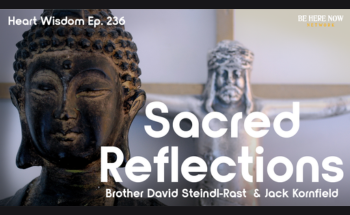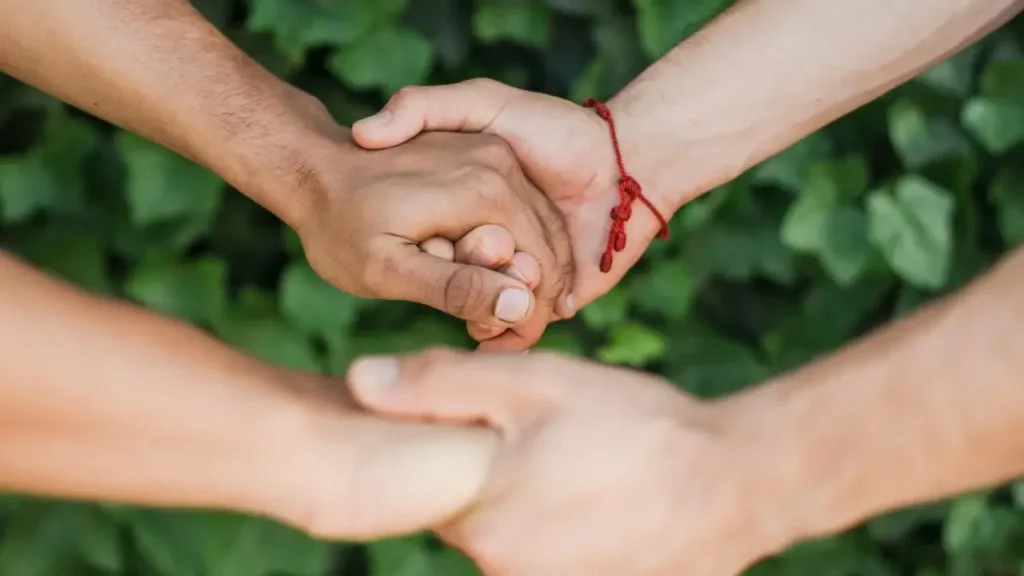Equanimity is not indifference, and compassion is not pity. True spirituality requires us to be fully present for life. For us to begin to look directly at the world situation is not a question of ceremony or of religion. Meditation helps us to look deeply at the sorrow that exists now in our world, and to look at our individual and collective relationship to it, to bear witness to it, to acknowledge it instead of running away. Without mindfulness and compassion the suffering is too great to bear. We close our minds. We close our eyes and our hearts.
Yet opening ourselves to all aspects of experience is necessary if we want to make a difference. To look at the world honestly, unflinchingly, and directly requires us to also look at ourselves. We discover that sorrow and pain are not just out there, external, but are also within ourselves. We have our own fear, prejudice, hatred, desire, neurosis, and anxiety. It is our own sorrow. In opening ourselves to suffering, we discover the great heart of compassion.
In the heart of each of us, a potential exists for experiencing this compassion and wholeness. The problem is that we become so busy and lost in our own thinking that we lose connection with our true nature. When we reconnect with our wholeness, our being naturally expresses itself both in meditation and through sharing ourselves with others.
I spend most of my time teaching meditation. Years ago, when many thousands of Cambodian people were fleeing violence in their homeland only to face starvation and disease in refugee camps in Thailand, something in me said, “I’ve got to go there,” and so I went. I knew the people and a few of the local languages. After being there trying to assist, I returned to this country to guide intensive meditation retreats. I did not deliberate much at the time about whether or not I should go to work in the refugee camps. I felt that it had to be done, and I went and did it. It was immediate and personal.
In years following I have done work in Palestine and Burma, in prisons and local hospitals, and with kids in street gangs. This is what I have been called to do alongside my meditation teaching. This has been my way. But it is not right for everyone. Some monks spend their lives in caves in the Himalayas ceaselessly radiating compassion for the world. Others run orphanages for children whose parents have died of AIDS. Which is the right way? The spiritual path does not present us with a prescribed, pat formula for everyone to follow. It is not a matter of imitation. We cannot be Mother Teresa or Gandhi or the Buddha. We have to be ourselves. We must discover and connect with our unique expression of the truth. We must learn to listen to and trust ourselves.
This excerpt is taken from the book, “Bringing Home the Dharma: Awakening Right Where You Are“






